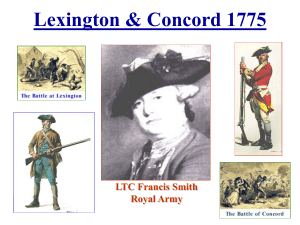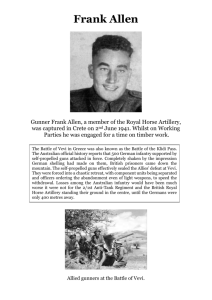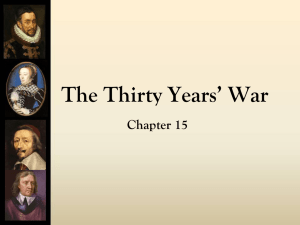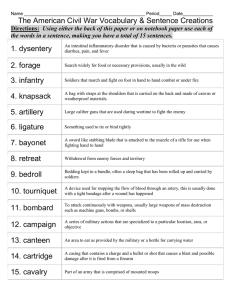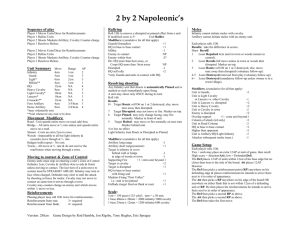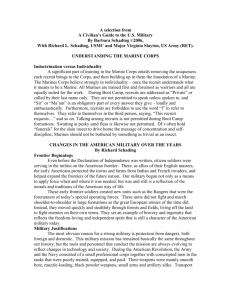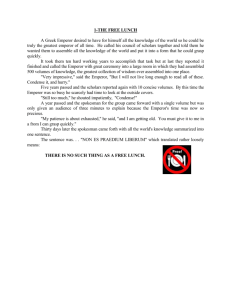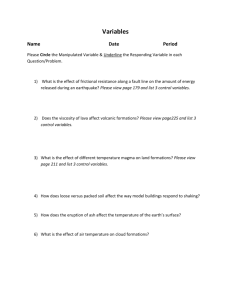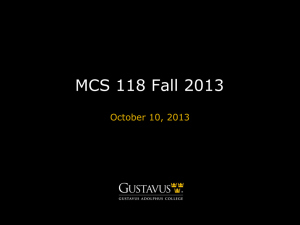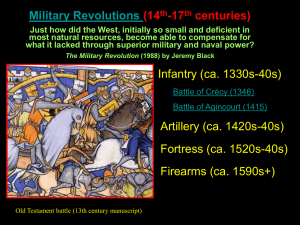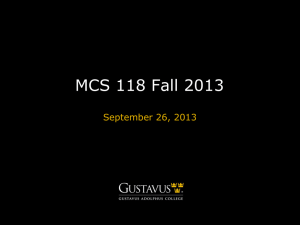30 Years' War Study Guide: Causes, Events, and Peace
advertisement
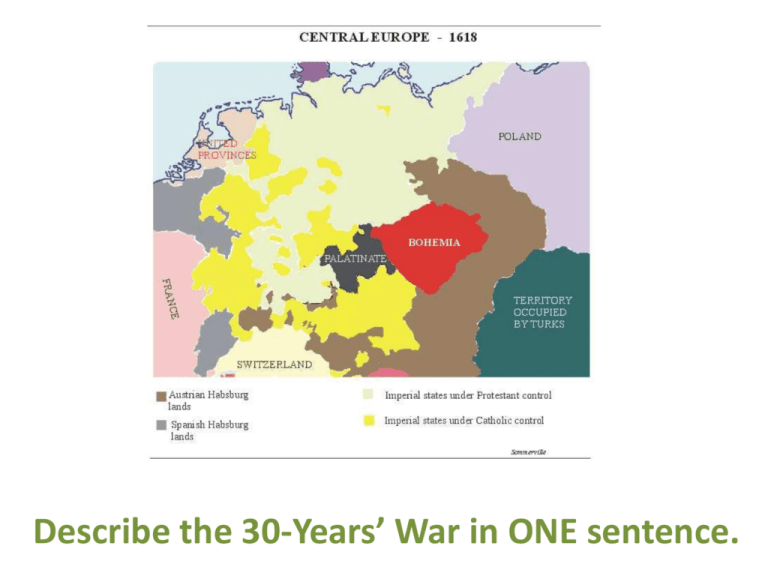
Describe the 30-Years’ War in ONE sentence. What were the primary causes of the 30-Years’ War? Explain the significance of the Defenestration of Prague Describe the Bohemian Phase in 3-5 words. Battle of White Mountain (1620), where imperial forces under Count of Tilly won a decisive victory Defend or refute the following statement: The Imperial victories during the Danish Phase, leading to the Edict of Restitution, threatened to undo the Protestant Reformation. Wallenstein The victory of Gustavus Adolphus at the Battle of Breitenfeld (1631). Gustavus Adolphus’s innovative tactical integration of infantry, cavalry, logistics and particularly his use of artillery, earned him the title of the "Father of Modern Warfare". He is famous for employing mobile artillery on the battlefield, as well as very aggressive tactics, where attack was stressed over defense, and mobility and cavalry initiative were emphasized. Among other innovations, he installed an early form of combined arms in his formations, where the cavalry could attack from the safety of an infantry line reinforced by cannon, and retire again within to regroup after their foray. He adopted much shallower infantry formations than were common in the pike and shot armies of the era, with formations typically fighting in 5 or 6 ranks, replacing the cumbersome and unmaneuverable traditional deep squares (such as the Spanish Tercios that were up to 50 ranks deep) occasionally supported at some distance by another similar formation—the gaps between them holding the artillery and cavalry. His artillery were themselves different—he would not let himself be hindered by cumbersome heavy cannon, but instead over a course of experimentation settled on smaller, more maneuverable weapons, in effect fielding the first light field artillery in history in significant numbers. These were grouped in batteries supporting his mobile infantry. In consequence, his forces could redeploy and reconfigure very rapidly, confounding his enemies. Additionally, his armies were very well trained for the day, so that his musketeers were widely known for their firing accuracy and reload speed: three times faster than any contemporary rivals. Describe Gustavus Adolphus’s place in history. Why did the French side with the Protestants? What did this guy have to do with that? What does his move represent? What does it mean the war became? The Peace of Westphalia What did Westphalia mean for the princes of the HRE? For the HRE itself, and the Emperor? For the Pope? For Calvinists? For France? What were the significant territorial changes made by the Peace of Westphalia? What does this map tell you? Why did this happen? What would be the long-term ramifications of such a loss? Discuss this chart from your Document Activity. (hint: take it out so you can see what you thought!) Directly against Emperor Indirectly against Emperor Directly for Emperor Indirectly for Emperor Discuss questions 2-6 of your Document Activity. Take out the “Modern Statecraft” reading. Share your sentence(s) from question 9 with your partner. Then go through the previous eight questions. Discuss the three “Considers” from your “Interpretations of the 30Years’ War.” Which of the two primary interpretations do you buy more? Why? What was the significance of the Ottoman Empire to Europe? What role did it play in European religion & politics? Explain the significance of these terms as they relate to the relationship between the Ottoman Empire and Europe: 1453, perception, & 1683.
